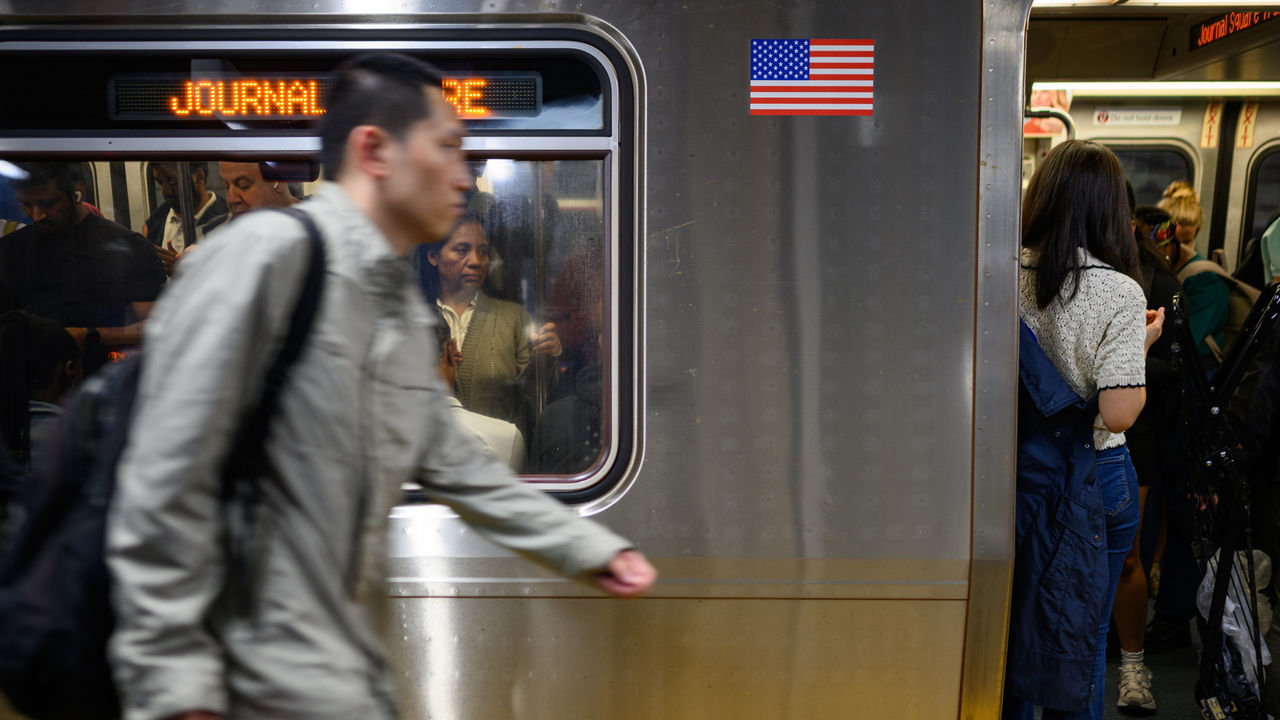Why Your Job Is Safe (For Now): The Current State Of AI And Employment

Welcome to your ultimate source for breaking news, trending updates, and in-depth stories from around the world. Whether it's politics, technology, entertainment, sports, or lifestyle, we bring you real-time updates that keep you informed and ahead of the curve.
Our team works tirelessly to ensure you never miss a moment. From the latest developments in global events to the most talked-about topics on social media, our news platform is designed to deliver accurate and timely information, all in one place.
Stay in the know and join thousands of readers who trust us for reliable, up-to-date content. Explore our expertly curated articles and dive deeper into the stories that matter to you. Visit Best Website now and be part of the conversation. Don't miss out on the headlines that shape our world!
Table of Contents
Why Your Job Is Safe (For Now): The Current State of AI and Employment
The rise of artificial intelligence (AI) has sparked widespread anxiety about job displacement. Will robots take our jobs? The short answer is: probably not all of them, not yet. While AI is transforming industries, the current state of the technology presents a more nuanced picture than the apocalyptic scenarios often depicted. This article explores the reality of AI's impact on employment and why, for now, your job might be safer than you think.
The Hype vs. the Reality: AI's Current Capabilities
The media often portrays AI as a rapidly advancing force poised to automate every job imaginable. While AI has made significant strides, particularly in areas like machine learning and deep learning, its capabilities are still limited. Current AI excels at specific, narrowly defined tasks. Think image recognition, data analysis, and simple customer service interactions. However, AI struggles with tasks requiring complex reasoning, critical thinking, emotional intelligence, and genuine human interaction.
Jobs Most (and Least) Vulnerable to AI
Certain jobs are more susceptible to automation than others. Repetitive, data-heavy roles are prime candidates for AI integration. This includes:
- Data entry clerks: AI can easily process and categorize vast amounts of data far quicker than a human.
- Telemarketers: AI-powered chatbots are increasingly handling initial customer contact.
- Basic accounting tasks: Software already automates many routine accounting functions.
However, jobs requiring creativity, complex problem-solving, and human empathy remain largely safe—for now. These include:
- Doctors and nurses: While AI can assist with diagnosis, the human element of patient care remains crucial.
- Teachers: The interactive and emotional aspects of teaching are difficult for AI to replicate.
- Software engineers: Ironically, AI development itself requires human expertise.
- Writers and journalists: While AI can generate basic text, it lacks the critical thinking and creative flair of human writers.
The Collaborative Future: Humans and AI Working Together
Instead of complete replacement, the future of work likely involves a collaborative model where humans and AI work together. AI can handle routine tasks, freeing up human workers to focus on more complex and strategic responsibilities. This synergy can lead to increased productivity and efficiency. For example, doctors can use AI-powered diagnostic tools to improve accuracy and speed, but the final decision and patient interaction still rely on human expertise.
Adapting to the Changing Landscape: Skills for the Future
To navigate this changing landscape, continuous learning and adaptation are vital. Developing skills in areas like:
- Data analysis: Understanding and interpreting data is crucial in an AI-driven world.
- Critical thinking and problem-solving: These skills remain highly valuable and are difficult for AI to replicate.
- Creativity and innovation: Humans excel in generating novel ideas and solutions.
- Emotional intelligence: Building strong relationships and understanding human needs are increasingly important.
will help individuals remain competitive in the job market.
Conclusion: A Cautious Optimism
While AI will undoubtedly continue to transform the job market, the immediate future doesn't spell widespread unemployment. The current state of AI technology suggests a collaborative future where humans and AI work together, leveraging each other's strengths. By focusing on developing skills that complement AI capabilities, individuals can ensure their future job security and contribute to a more productive and innovative workforce. Staying informed about advancements in AI and proactively adapting your skillset is key to navigating this exciting, and potentially challenging, new era.

Thank you for visiting our website, your trusted source for the latest updates and in-depth coverage on Why Your Job Is Safe (For Now): The Current State Of AI And Employment. We're committed to keeping you informed with timely and accurate information to meet your curiosity and needs.
If you have any questions, suggestions, or feedback, we'd love to hear from you. Your insights are valuable to us and help us improve to serve you better. Feel free to reach out through our contact page.
Don't forget to bookmark our website and check back regularly for the latest headlines and trending topics. See you next time, and thank you for being part of our growing community!
Featured Posts
-
 Haddad Maia Vs Baptiste Roland Garros 2025 Match Prediction And Betting Tips
May 28, 2025
Haddad Maia Vs Baptiste Roland Garros 2025 Match Prediction And Betting Tips
May 28, 2025 -
 Indy 500 Victory Alex Palou Proves Oval Critics Wrong
May 28, 2025
Indy 500 Victory Alex Palou Proves Oval Critics Wrong
May 28, 2025 -
 Team Usa Claims Gold Upsets Switzerland In Intense Ice Hockey World Championship
May 28, 2025
Team Usa Claims Gold Upsets Switzerland In Intense Ice Hockey World Championship
May 28, 2025 -
 Stay Dry Cool And Wet Tuesday Weather Update
May 28, 2025
Stay Dry Cool And Wet Tuesday Weather Update
May 28, 2025 -
 2025 Ssi Payment Schedule Check Your June Payment Date
May 28, 2025
2025 Ssi Payment Schedule Check Your June Payment Date
May 28, 2025
